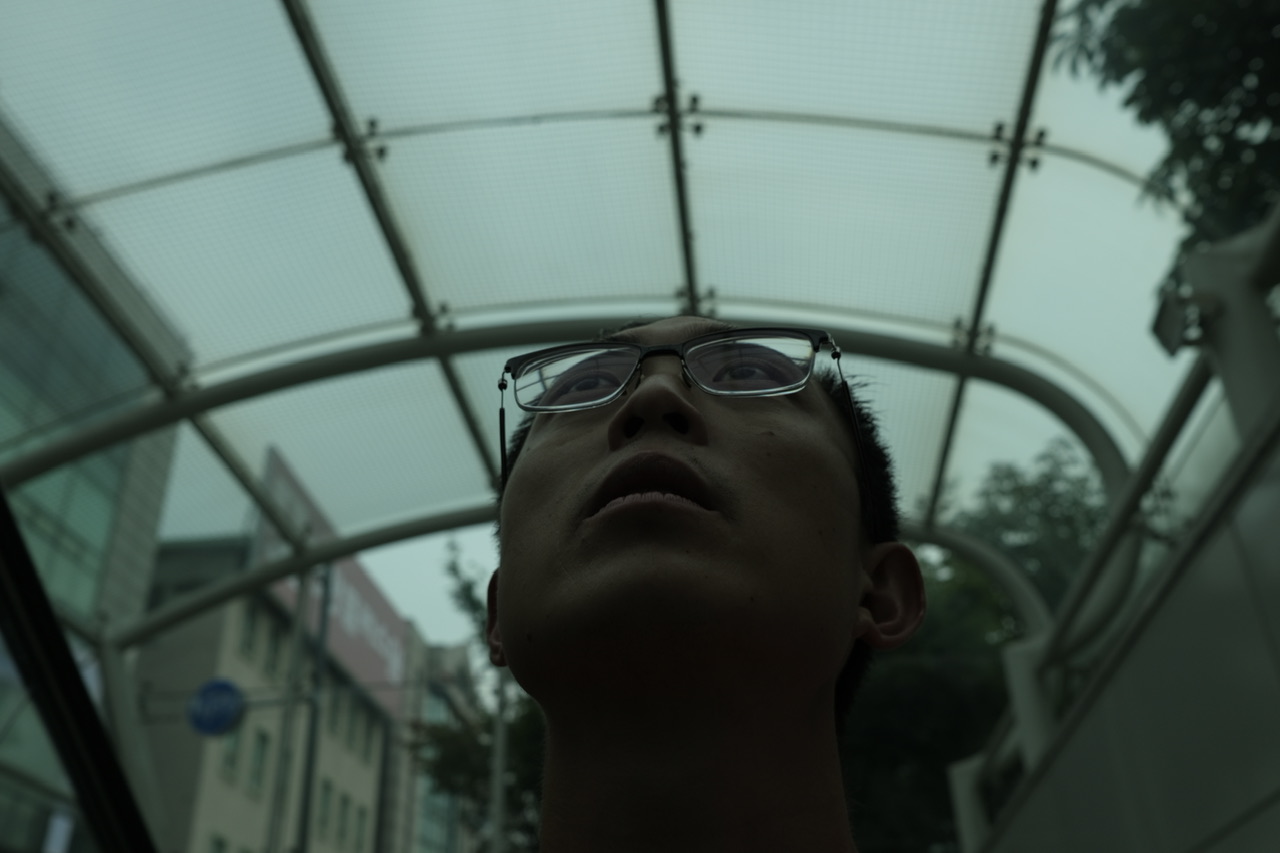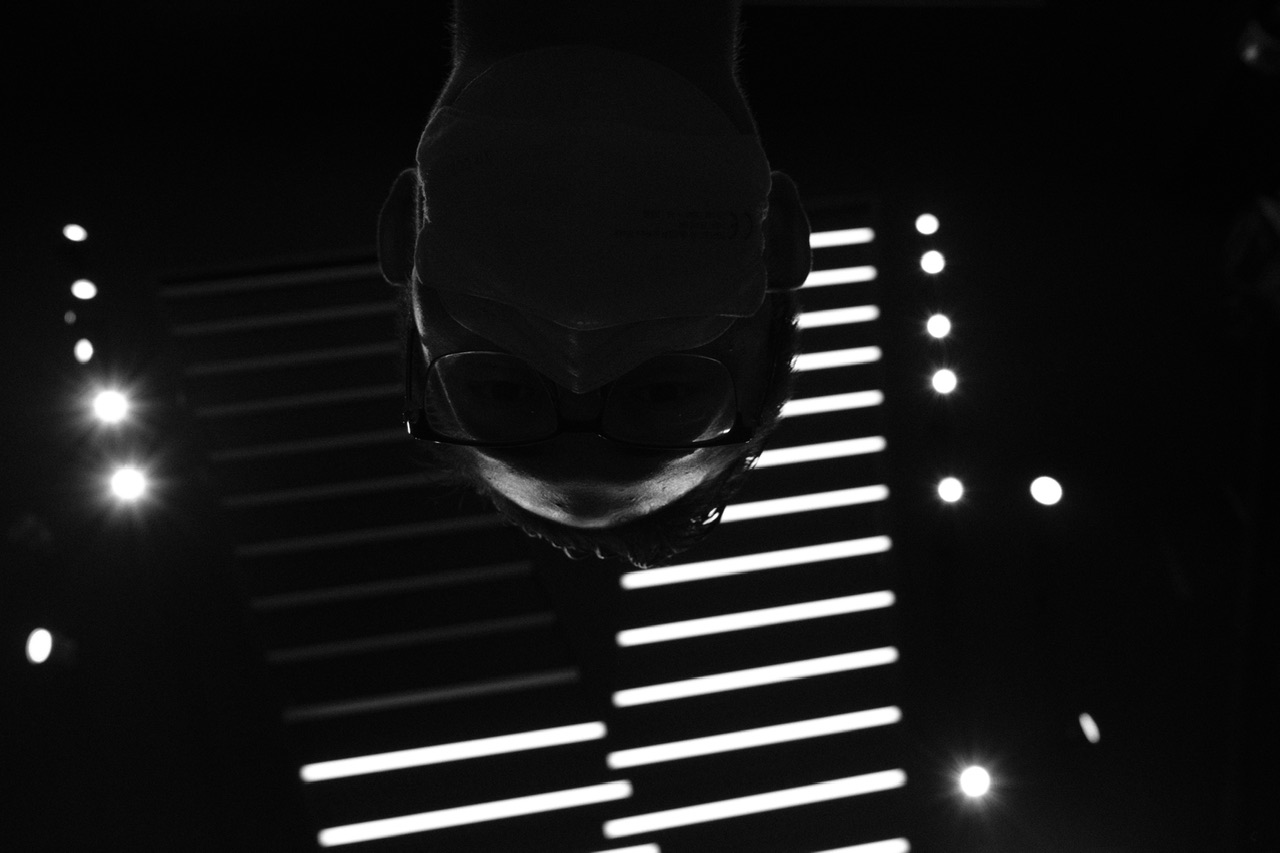















A nice thought: rather than seeking to imitate your past self, or continue to do what you are successful at, perhaps it is better and more interesting to strive to create a new legacy; experimenting and innovating and things you are either ignorant of, or attempting some thing radically new.
The first simple thought is this; adopt the mind of a beginner, or the mind of a child. Even when I look at my one year seven month year-old son, the way he experiences things is radically fresh. He touches things, and experiments things, in order to figure out what happens. Perhaps we should also try to do the same; rather than seeking money or success or fame, we are simply curious about the feedback which will happen if we try something new.
For example, when Seneca hits the shutter button on my camera, or plays with any other function buttons on the back of my Ricoh GR camera, he is simply curious what will happen. And once he discovers what the thing does, he likes to do it again, in order to strengthen the feedback loop cycle.
Why is it that all these successful Silicon Valley entrepreneurs and billionaires end up in some sort of silent retreat in the mountain or in the woods, or why so many major religions were founded by individuals went to the desert?
It seems that in order to innovate something radically new, you must radically seclude yourself. For example, one of my great renaissance‘s or rebirths was when I went super Zen monk mode in Vietnam for two years; radical disconnection from everything.
Also, I think it is a good idea to not seek feedback from anyone else, but simply to do things because you’re curious about the outcome.
Also, in order to innovate something totally brand-new, insanely robust health is essential. For example, I’m currently in the countryside in Korea, and I have found that in the countryside, I just sleep way better. Getting better sleep has helped me gain more strength, which also gives me more chutzpah to try something new.
Another thing which I am very proud of my son Seneca is that he has no concept or interest in money. To a child, money is simply a piece of useless paper. He is far more interested in playing with cars, throwing around rocks, walking up and down incline surfaces, And exploring the world.
How is it that we are adults become so corrupted by seeking money? Society.
You cannot really innovate or create something new if you’re seeking money. Why is that? If you try something totally brand-new, most likely it will not directly result in making money. If you want a steady flow of cash, easier to have a 95 job, and receive a predictable salary, either every two weeks or every month, or just be an Uber driver, and you directly get money feedback from the activities what you do.
But if you think about the really really successful companies, they tried something radically new before they even knew it was possible to make money with it. For example, in the early days of Facebook; do you remember when there were no advertisements? Even Mark Zuckerberg said in the early days that he thought that advertisements were lame.
Or Google, they started off as a search engine. This is before they were able to figure out how to advertise and monetize search.
Also another bias I have discovered about Silicon Valley, Y Combinator, etc.; they have helped many start ups become very successful, but the really really insanely successful companies like Amazon, Facebook, Google never went through an incubator program. Therefore, my thought is this:
If you want to become insanely insanely great, or build some radically new company, you must disconnect yourself from all notions of Silicon Valley, venture capital, Y Combinator, start ups, etc.
Let us all assume we will live to be 120 years old. And let us also assume there is no conscious afterlife. Then what is the point of it all?
I think deep down, we all have some sort of altruistic love of humanity. We want future humans to prosper. This becomes especially true once you have a kid; assuming no texting while driving accidents happen, they will most likely outlive you.
The hilarity is that even in the year 2022, the internet is still the future.
For example, the upside is that Google is doing a good job indexing everything on the Internet, which means if you are well indexed on Google, most likely your stuff will persist into the future.
Also, the upside of making things open, free and open source. Standalone JPEG files, zip files, PDF files and off-line storage like thumb drives and SD cards will persist well into the future.
Things which are constantly changing and evolving include technology, devices, etc. However there are certain things which do not change like ideas, wisdom, inspiration and motivation.
Also, in terms of what lasts or what doesn’t last, it seems that individuals and their ideas and philosophies last, whereas nations, civilizations, and empires do not last.
Schools of thought, and cultures seem to have also a good robust lifecycle. 
Let your own personal enthusiasm and interest guide you. Once you get bored or something, move on, or reimagine and reinterpret it.
For example, everything that I write, blog, and share or publish is an offshoot of something which personally interests me. If it does not interest me, there is no enthusiasm. Enthusiasm is only possible when you are personally curious about it. 
The other day I looked at this water wheel, which was powered by a small stream. The thing that is so interesting about the stream of water is this; it never stops flowing.
Even if you think about information, data, etc.; it is all considered a “streamâ€.
Therefore with your blog, or your channels for publication, just keep flowing it and streaming it. No end.
Flow on!
ERIC
***
If ERIC KIM NEWS inspired you feel free to forward to a friend!
ERIC

A critique of companies which piggyback off their past legacy. Far superior to create a new legacy instead.
For example, it seems that people either do not know or are ignorant of the fact, or decide to ignore the fact that Lamborghini is owned by Volkswagen. Also, the great shame of Lamborghini reviving their Countach, which is essentially a Lamborghini Aventador with a body kit.
Also, Leica is trying to piggyback off their past legacy with Henri Cartier Bresson.
The great thing with Elon Musk, and Kanye West; they are both creating radically new designs for their products.
Also for yourself, or even myself; rather than just doing what you already succeeded at, or what you’re already famous for, create something brand-new, and innovate something totally brand-new.

Having played around a little bit with the Fujifilm X pro 3, I actually really liked it. But some design suggestions for the next XPRO4:
Too many ugly buttons and text and font around the camera. Get rid of the drive button, the AE button, and the random button above the Q button, and also the top right button. Anyone who buys a Fujifilm X pro camera essentially wants a more modern like a rangefinder, so make it more simple.

I used the acros black and white film simulation preset, and it was very dissatisfying. Not enough contrast, introduce the neopan 1600 preset, and make it insanely high contrast black-and-white, just like the Ricoh GR 3X hi contrast black and white setting.
Also, the Fujifilm camera should also be able to adjust the contrast settings of every film simulation preset JPEG in camera in-camera.
Also, to make the X pro 4 more film like, for the film grain settings, just have the user toggle between ISO 400, ISO 400, ISO 800, and pushing to 3200.
The big problem about the Fuji film X-pro series is this; it is too fat and chunky. Put it on a diet, make it slimmer, and rounder around the edges.
The font for the X pro 3 and the X pro series is too generic. It looks like standard Arial font. Make it look more unique, maybe more Japanese.

Also, the Fujifilm X pro 4 should be stylized as â€XPRO IVâ€. I do not see a strong reason for there to be a dash between the X and the Pro.

This is my thought; Fujifilm should position themselves like Tesla; much more advanced, sexy, and innovative and modern than the Leica M digital rangefinder.




It seems based on my experiences, a lot of people who end up buying a Fujifilm x100 camera, or a Fujifilm X pro camera could actually afford a Leica M digital camera, or even a Leica Q digital camera.
The other day I looked at the Leica M 11, and was very unimpressed. I think the only thing like is is running on is their past Legacy. Fujifilm is in a great position to disrupt, as it is creating a new legacy.

Some design suggestions for the Leica M12:

The first design suggestion is this: become more ruthless about transforming the new like a M digital camera into minimalist perfection.
For example, nobody uses that lever in the front of the Leica M rangefinder camera.


Also, get rid of the button in the top right corner of the Leica M rangefinder digital camera. nobody knows what that button is.
The big problem about the new Leica M 11 is this; it is virtually undistinguishable from the prior generation Leica M 10. Therefore, it is my belief that there is no real strong incentive or motivation for photographers to either buy an M 11 over an M 10, or upgrade.
A simple suggestion is make the Leica M12 have an all black dot, with the “Leica†script in white. At least superficially, it looks different.

The big problem with cars is this; no matter how great of a car you buy, it will always get outdated in a year or two.
For example, let us imagine that you were one of the few suckers who bought a Lamborghini URUS when it first was released. Now, you’re stuck with your old model, even though that the new URUS S or the URUS PERFORMANTE is out.
Or even in the world of Bugatti, even if you got the Bugatti Veyron, now it is outdated it looks old and ugly. Bugatti Mistral is now out.
Therefore the question is this; if you are in a position where you really do need a car for every day living, what should you do?
The first thought is if you just want to live more freely, and not be beholden to your car, just buy a really cheap used car, and if you get bored of it, we’re no longer need it, you could easily sell it, or just give it away. For example, awaiting the birth of Seneca, I bought a 2003 Subaru outback, five speed, with 220,000 miles on the odometer for only $800 USD. After a year of use, one of the radiator hoses melted on a hot day, and it caused the piston rings to give out, and then I just junked the car, and got $300 of cash from the junkyard. Spending only $500 for a year of use was well worth it.
Another thought is if you just want a simple car to get from Point A to Point B,, just get a used Toyota Prius. They are insanely reliable, good on gas, and because it is a hatchback, very versatile. If you live in southern California, just get a white one.
If you want the thrills of driving really fast, or racing on a track, best to just spend 1000 bucks and rent a Porsche GT 3 for an hour at one of the Porsche experience tracks.
The true ideal is to not own a car at all; if you need to get somewhere, just take the subway, bus, or call an Uber. Or borrow a car from the family. Or if you want to go on a weekend excursion somewhere in the mountains, just rent a car for the weekend. Upfront, the cost seems much higher, but in actuality, you end up saving a shitload of money in the long run.
Also one of the major downsides of owning an electric car, like a Tesla, or any other electric car this; an electric car is just like a really really expensive iPhone. The battery technology quickly gets outdated in about a year or two. Therefore, it seems that the ideal strategy is either buy one used and resell it, or just lease it.
What if you want some sort of sports car, some gasoline car? Then it perhaps makes the most sense to just buy one used, because you will get it at a steep discount, and if you decide to resell it, you could probably get around 90% of what you bought it for. If you buy a brand-new gasoline car, you will instantly lose 30% of its value after you drive it off the lot. One of my personal problem things in life is that I have never bought a car that was more expensive than $2500 USD.
The fastest technology possible
The most capable technology
Take on the sun
What do photographers really want or need?
Beautiful women
Digest your experiencesÂ
Keep it flowing
Unobstructed
Disregard
Blog stream
Photos as a mnemonic device
Just share your thoughts and experiences
He likes the hybrid of both physical keyboard AND digital touch bar.
Perpetual spinning wheel.

I think the foolish thing that a lot of people think is this; once I find the perfect city, neighborhood, town, house, climate, living situation, etc., I will live there forever until I die.
In fact, nothing and nowhere is forever. I think an undulation or the dynamic range between things is what makes life great.
For example, I am American, yet I love being all over the place. I love Seoul South Korea, the countryside, the countryside of Korea, Phnom Penh Cambodia, Saigon in Hanoi in Vietnam. Mexico City, etc.
Give me insanely fast Wi-Fi and I shall move the world!
You will never know until you try it.

First select your favorite photos, then export them, and re-share them to another device, then re-filter them again. Kind of like filtering kefir cheese:
Why I love being abroad:
We are the new Spartans:
You begin to realize just how ridiculous your own place is.
The trifecta — iPhone, iPad, MacBook.
Video slideshows as a great compact way to share your photos:
I love Cambodia!

Surprisingly, I actually really like the Fujifilm XPRO3.
Originally I thought the ‘no lcd screen’ (or the automatically flipped backwards LCD screen) was a gimmick, but it is actually really cool! Kudos for Fujifilm for having the balls to actually attempt an incredibly radical idea!
The first thing I really like about the XPRO3 (and the 23mm f/2 lens — 35mm full frame equivalent) is that the autofocus is insanely fast and accurate. No more need for manual focus.
Also, electronic shutter– totally silent. Shooting with the XPRO 3 for street photography (in dark, dimly lit subway in Seoul) and also on the streets felt a trillion times faster than shooting with any Leica M rangefinder.
In fact, for street photography, the XPRO3 is probably 1000x better than even the Leica M11 for street photography!
The JPEG in camera settings are quite great. Any of the color fujifilm color film simulation presets (negative film simulation, high contrast, classic-chrome, etc):











The biggest pitfall for us photographers:
We think too much (paralysis by analysis) before hitting the shutter.
XPRO3 is a great solution– because it is so fast, you shoot more, think less.
Frankly speaking my biggest critique of the XPRO3 is that in terms of proportions, I think the XPRO3 is pretty ugly.
But ultimately speaking, this doesn’t really matter. This was my realization:
The design of the camera body is not embedded within the photos.
So in some sense, it is better to have an ugly camera which produces great photos, than a beautiful camera which produces ugly photos.
Ultimately what matters most? Life. XPRO3 good to photograph your life!
























































































































































































































































































































































90% Hardware, 10% Screen?
Today on my 13” MacBook Pro touchbar, seneca did something interesting:
He turned off the screen brightness to zero, and when having the music app open, he controlled the music only using the touch bar.
Which made me think:
Imagine if Apple made a MacBook laptop (the ‘MacBook Zen’) which was literally a typewriter– only the physical keyboard and the tiny touchbar area which showed the text you were typing.
Do you remember the super early-old-school ‘digital’ keyboards, which was literally just a typewriter with a tiny LCD strip on top? Might be a good cure for ‘writer’s block’ or those who are too distracted when writing!
Imagine a MacBook Pro Touchbar (13”) without the LCD screen– only the bottom part! The exact opposite of an iPad.
Share your works in-progress:







Also, laptop for maximum power.
Your workflow is and always will be in a state of flux.
Effort is a slave mentality.
Against the notion of training until failure. A better approach is doing as few repetitions as possible, in order to just feel a good pump.